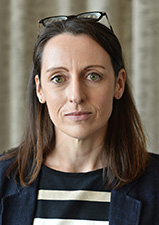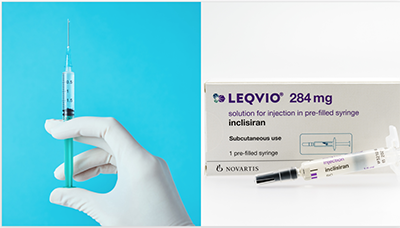10 years of Warwick Evidence

Since its inception 10 years ago, Warwick Evidence has contributed to the production of more than 90 pieces of clinical guidance that have generated policy change in the NHS. Here, Director Dr Amy Grove tells us more about the team, its work and objectives.

Warwick Evidence is a technology review team founded in 2011 by Professor Aileen Clarke. As a core team we are funded by the National Institute for Health Research (NIHR) Systematic Reviews Programme and are located in the Division of Health Sciences at Warwick Medical School.
Our overarching aim is to improve the health of the public - either directly, by facilitating the introduction of cost-effective interventions, or indirectly, by reducing expenditure by the NHS on interventions that are not cost-effective, allowing scarce funds to be better spent. For the last 10 years our primary contract has been with the Department of Health and Social Care, to undertake technology assessment reports for the National Institute of Health and Care Excellence (NICE). We have also conducted reviews and assessments for other organisations including (what was) Public Health England, The National Screening Committee and the International Liaison Committee on Resuscitation.
A methodologically diverse team of experts
Over the last decade we have grown in number and in the type of research we perform, from systematic reviewing and cost-effectiveness analysis through to panoramic evidence synthesis, realist reviews and conceptual modelling of treatment pathways prior to building economic models. We have developed a strong focus on enabling collaborative and interdisciplinary work, as demonstrated through our methodologically diverse team of experts.
We have specialist expertise in diagnostics, test evaluation and screening, information science, medical statistics and health economics, mixed method and realist reviews and advanced methods of meta-analysis. Our core team is divided into four key methodological disciplines: Evidence Synthesis, Health Economics and Statistics, Diagnostics and Screening, and Information Science and Operations.
Alongside the core team, we have access to content expertise through our senior clinical, scientific, and methodological advisory group, which provides us with a network of technical and topic experts in a senior advisory capacity as well as input from the NHS and from other technology appraisal review teams. We have a team of honorary researchers and honorary clinicians from hospitals in the region and five external consultancies who provide critical appraisal, systematic reviewing, statistical support, and pharmaceutical advice.

Working to improve the health of the public
We’re proud to have contributed to the production of more than 90 pieces of clinical guidance over the last 10 years, which have generated policy change in the NHS. A key highlight for us was the recent single technology appraisal of Inclisiran for people with primary hypercholesterolaemia or mixed dyslipidaemia who have already had a cardiovascular event such as a heart attack or stroke. Approval of this drug represents a potential game-changer in preventing thousands of people from dying prematurely from heart attacks and strokes, and will see as many as 300,000 people with high cholesterol or mixed dyslipidaemia receive the drug over the next three years.
Another piece of work which has had significant impact was our multiple technology appraisal that determined the clinical and cost-effectiveness of total hip replacement for people with end-stage arthritis. This work had an enormous impact on UK surgical practice and initiated a national change in the provision of hip replacement surgery. Prostheses must now have rates or projected rates of revision of 5% or less at 10 years – this was previously 10% at 10 years. An abridged version of the work was published in the BMJ and it has underpinned NICE clinical guidance. It’s been widely cited across the globe and demonstrates the international impact of UK Health Technology Assessment, of which Warwick Evidence are a leading contributor.
Looking ahead
Our plans for the next 10 years are three-fold. Firstly, to sustain the high quality of our work for the next funding round of Warwick Evidence (2022-2027), which we were successfully awarded in 2021. Second, to use this core funding as a platform to pursue additional funding for innovative research in Health Technology Assessment and methodological development across all our disciplines. And finally, to further engage with our academic and clinical communities in WMS, the university and beyond to strengthen our networks and increase local collaboration in our research.
To work with Warwick Evidence or to find out more about the team’s research, please contact Dr Amy Grove at warwickevidence@warwick.ac.uk. Follow the team on Twitter: @WarwickEvidTAG and @amylougrove.

